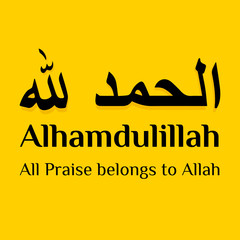Are you an employer or employee?
Use this page to better understand federal laws to better protect your employer and your job.
Please visit:
When you say:
Allah
God
then say:
Subhanahu wa ta’ala
Glory to Him, the Exalted
-or-
Azawajal
The Mighty
Muhammad
Peace Be With Him
then say:
Salla Allahu AleyiWaSallam
May God’s peace and blessings be upon him
Are You Ready for Ramadan?
Welcome. Lets start with the 5 Pillars of Worship, the Foundations of Islam
1st Pillar – الشهادة
1st Pillar
Shahada – (declaration of faith)
“I bear witness that there is no deity but God, and I bear witness that Muhammad is the messenger of Allah.”
“أشهد أن لا إله إلا الله وأشهد أن محمدا رسول الله”
“Ash-hadu an la ilaha illa Allah, wa ash-hadu anna Muhammadan Rasul Allah.”
2nd Pillar – الصلاة
2nd Pillar
Salaat – (Prayer)
content for all 5 prayers and when
- Fajr (fajir)
- Dhuhr
- Asr
- Maghrib (mehrib)
- Isha
| Prayer Times | |
|---|---|
| Fajr: | 05:31 AM |
| Sunrise: | 06:39 AM |
| Dhuhr: | 12:27 PM |
| Asr: | 03:45 PM |
| Maghrib: | 06:16 PM |
| Isha: | 07:24 PM |
Qibla in Mecca
Direction

3rd Pillar – الزكاة
3rd Pillar
Zakat – Purification and Growth (Helping the Needy)
2.5%, typically paid once per year, see below.
Paying Zakat is a way to cleanse one’s wealth and soul.
How to pay Zakat?
Muslims pay Zakat to 8 categories of eligible people set by God in the Quran (Surat Al-Tawbah, 9:60):
- The Poor (in dire need prevented from asking)
- The Indigent (whose destitution drives them to ask)
- Those Administering Zakat’s collection and distribution
- Those whose hearts are to be reconciled
- Those in bondage (slaves to be freed and captives)
- The Debt-Ridden
- In the Cause of God
- The Wayfarer (stranded, displaced, or cut off from resources while traveling)
Zakat vs. Sadaqah
Zakat
Obligatory form of charity.
Sadaqah
Voluntary form of charity, any amount, any time.
Zakat is due once a lunar year has passed on the wealth that meets or exceeds the Nisab threshold. It is common for Muslims to calculate and pay their Zakat during the month of Ramadan due to its spiritual significance and the increased rewards for good deeds during this month.
Zakat is typically paid as a lump sum to ensure that the needs of the recipients are met promptly and effectively.
Zakat can be given directly to eligible individuals, through local mosques, Islamic charities, or organizations that specialize in collecting and distributing Zakat. It is important to ensure that the organization is trustworthy and that the funds are being distributed according to Islamic principles.
When giving Zakat, it is important to make the intention (Niyyah) that this payment is for the purpose of Zakat. This distinguishes it from other forms of charity and ensures that the act is performed with the correct Islamic intention.
What I do:
Every time I receive money, whether that’s for school, or my paycheck, or even if I am getting paid back from something (just to be safe), I take 2.5% and transfer that into an account made just for zakat.
Issues of riba or Interest are addressed in the jurisprudence section.
4th Pillar – الصوم
4th Pillar
Saum – Reflecting and Fasting
Ramadan
things not to do:
lie and passion stuff
fasting is 30% better during ramadan
zakaat al-fatir
5th Pillar – الحج
5th Pillar
Hajj – Making the Pilgrimage
8th to 12th of dulhje
Must go at least once in lifetime.
Phrases to incorporate into your daily:
- Inshallah (إن شاء الله): This phrase means “God willing” or “if God wills.” It’s often used when talking about a future event or hope, acknowledging that all things happen by the will of God. For example, “I will see you tomorrow, Inshallah.”
- Masha’Allah (ما شاء الله): Meaning “what God has willed,” this phrase is used to express appreciation, joy, praise, or thankfulness for an event or person that was just mentioned. It’s a way of recognizing that all good things come from God. For example, in response to someone achieving success, one might say, “Masha’Allah, your hard work has paid off!”
- Alhamdulillah (الحمد لله): This means “all praise is due to God” or “praise be to God.” It is used to express gratitude and thankfulness for any situation, whether good or bad. For example, when asked how one is doing, responding with “Alhamdulillah” indicates contentment and gratitude for God’s blessings.



